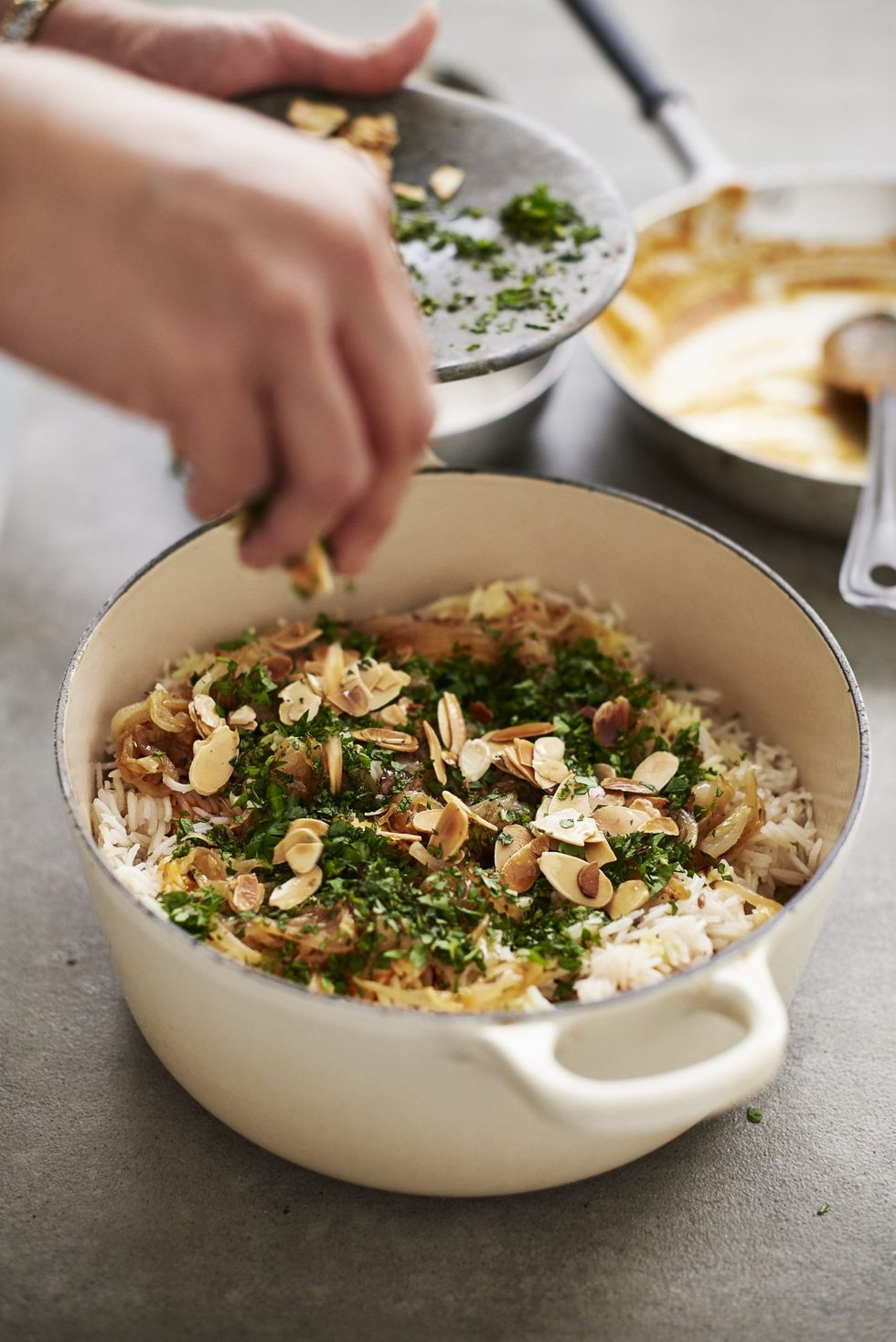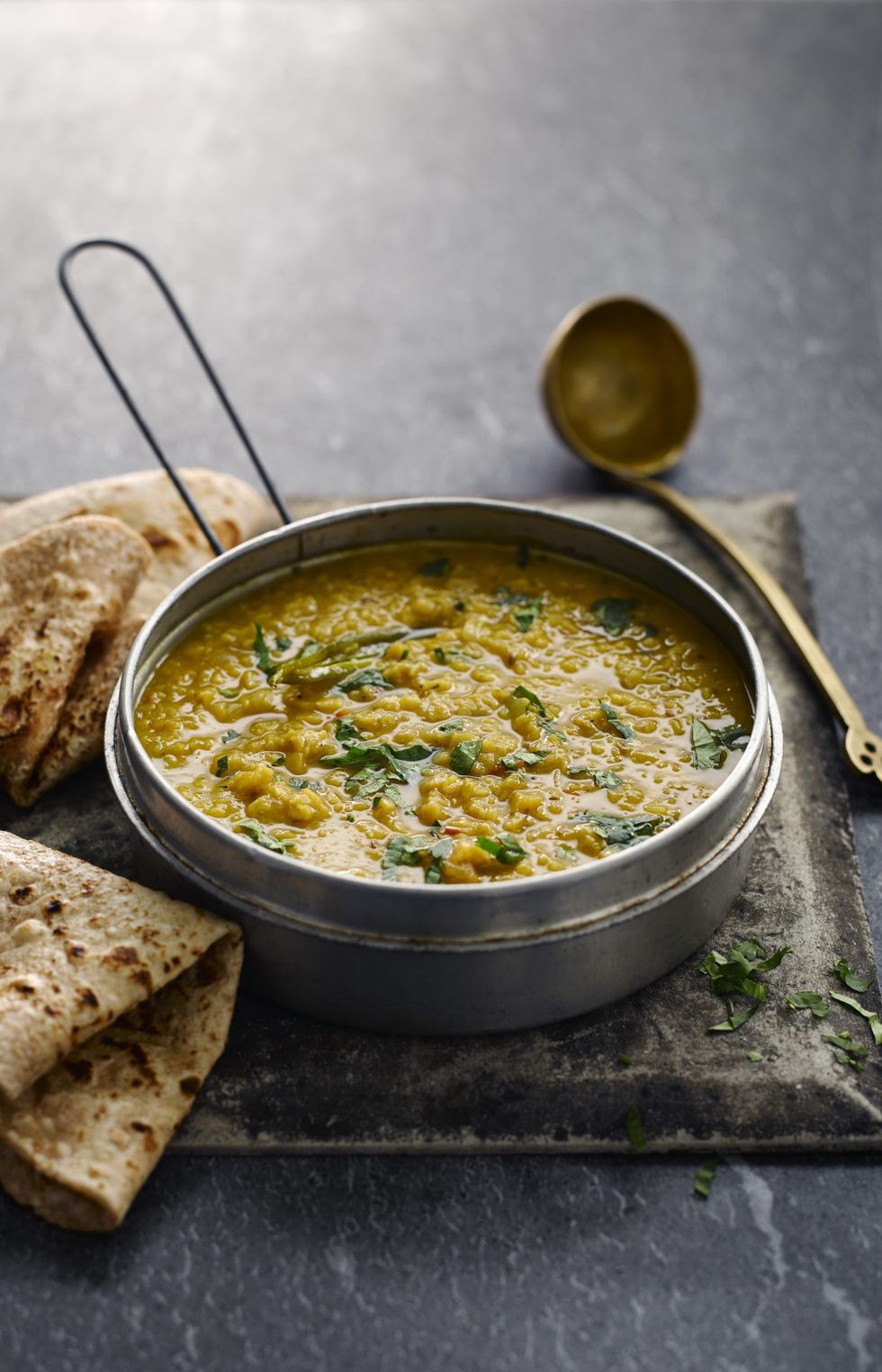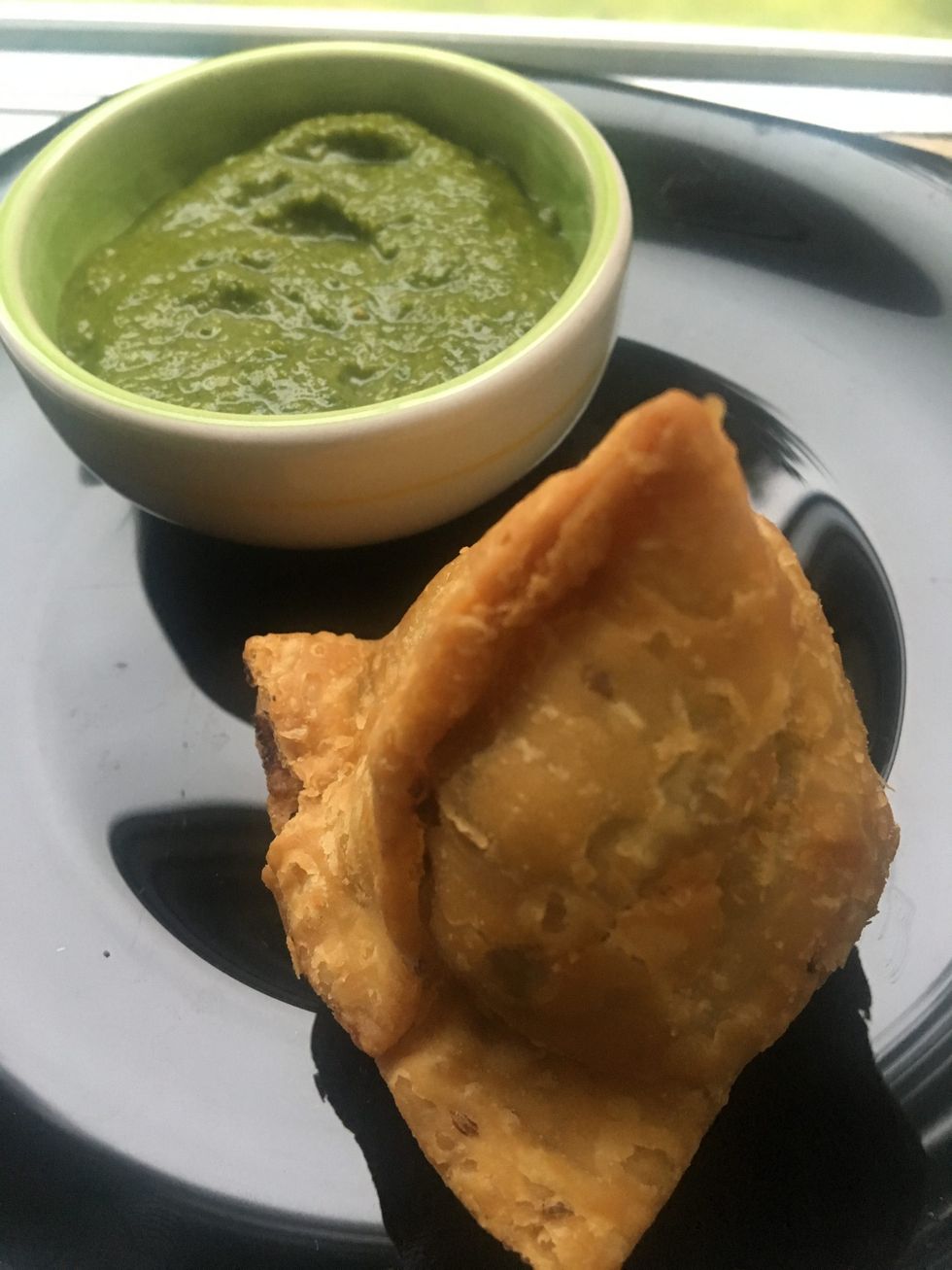AUTHOR AND CHEF DISCUSSES HER LOVE FOR TEACHING COOKING
PERHAPS the most popular pastime of the current pandemic has been cooking.
Extended time indoors has led to a lot of people learning the finer points of culinary skills, cuisine and creating delicious homemade dishes. Restrictions being lifted has led many to go a step further and taking cookery classes from trained professionals like Monisha Bharadwaj.
The London-based chef, award-winning author, and food writer, regularly holds her massively popular Cooking With Monisha classes that teach students how to cook different varieties of Indian food, along with learning about the various spices. Her classes are so popular that she also attracts professional chefs wanting to perfect authentic Indian cooking.
The kitchen queen is also a food historian, acclaimed author, regular judge at events, invited to speak at high-profile events, runs cooking workshops for charity and personalised classes with those who have special needs.
Eastern Eye caught up with the multi-talented food expert to discuss her cookery journey, classes, and importance of spices. She also gave top cookery tips.

What first connected you to cooking?
I grew up in Mumbai, which is the food melting pot of India. We had neighbours from various parts of the country and in those days, food was shared and enjoyed together. By the time I was six, I had tasted Maharashtrian, Tamil, Punjabi, Bengali, Sindhi, Marwari, Gujarati, Goan food and more. I also belong to a very food-loving family, so meals were always celebrated in our home. Later, I went on to train at the Institute of Hotel Management, Mumbai, and became a professional chef.
Your classes are massively popular. How do you decide which ones to conduct?
I have been running my Indian cooking school Cooking With Monisha in London since 2005 and have also been writing books. This gives me a unique insight into what customers are looking for, as lots of readers and clients write to me.
Tell us about a typical class?
We run both in-person and online cooking classes. Our in-person public classes run as half or full days. Clients learn about how to use spices and other Indian ingredients for depth of flavour and good health. Our online classes attract clients from all over the world. We also run private classes for individuals or small groups for special occasions like birthdays, corporate team building events, corporate well-being online events, intensive five-day chef training courses and more. So, I’d say that we don’t have a typical class!

What has the experience of teaching cooking been like?
I love what I do. My work brings me in contact with food lovers from all over the world. I enjoy sharing my knowledge and passion for food, and feel privileged that many people taste Indian cooking for the first time through my books and classes. Running a cooking school also gives me the opportunity to showcase the vast variety of Indian food and how healthy it is, as opposed to what one can buy in most restaurants.
What types of people come for the cooking classes?
Our clients come from all over the world, some even fly in for the weekend to attend classes. We have absolute beginners and also chefs who want to add Indian food to their restaurant menus. We have a lot of men attending our courses – it seems like men enjoy cooking Indian food just as they seem to enjoy cooking on the barbeque!
What top Indian cooking tip would you give?
To keep it simple! We often over complicate recipes and then find that cooking takes too long. A few good ingredients, the right method and equipment, and a well thought out menu can make cooking a joy every day of the week.
What cooking tip would you give beginners?
To give it a try. Many beginners lack the confidence to cook. I’d say to them it’s okay to make mistakes, so that you keep learning and building on your skills. No one is a great cook the first time they try but keep cooking, and one day it will all fall in place.

What mistakes do people make when cooking?
Some of the ones I have come across are: adding too much spice, too little salt, too much oil or cooking things for too long, so that there is no texture left.
How important is it to understand the spices?
Spices are at the heart of Indian cuisine and cooking them correctly can make or break the dish. There are many ways to cook spices, but it all depends on an understanding of the time and temperature required to cook a certain quantity of spice just right.
What inspires you?
I find many things inspiring! Going to food markets, travel, meeting other people who are passionate about food. My family inspires me to cook as they are all food lovers.
Why do you love the art of cooking and teaching?
I love teaching people a life skill that is so essential but in an easy, delicious, and fun way. It is a pleasure to see my students fall in love with the art of cooking while also enjoying the meal they’ve just cooked – the foods of their labour.
Visit www.cookingwithmonisha.com & Instagram: @monishabharadwaj



















 Heehs describes two principal approaches to biographyAMG
Heehs describes two principal approaches to biographyAMG